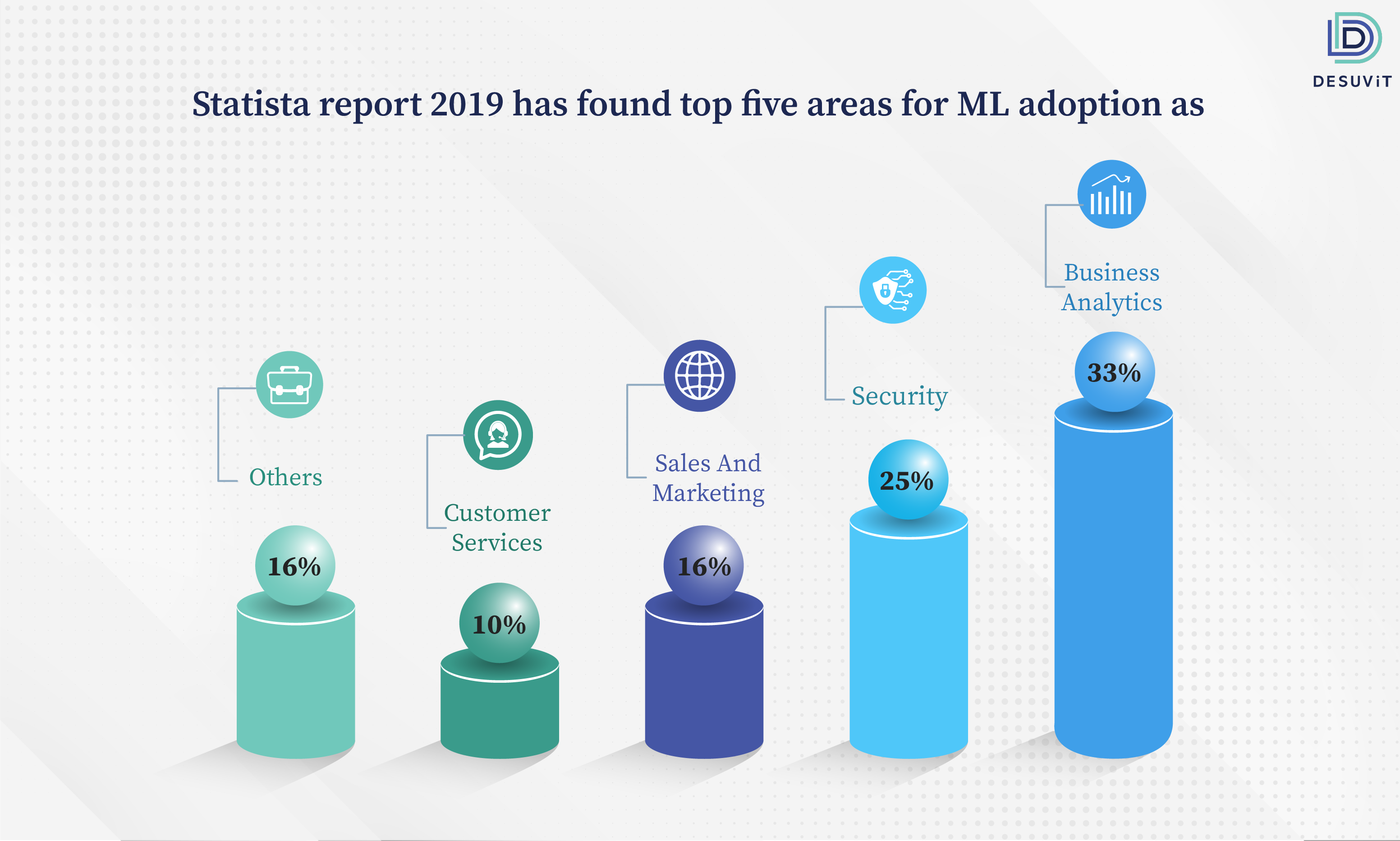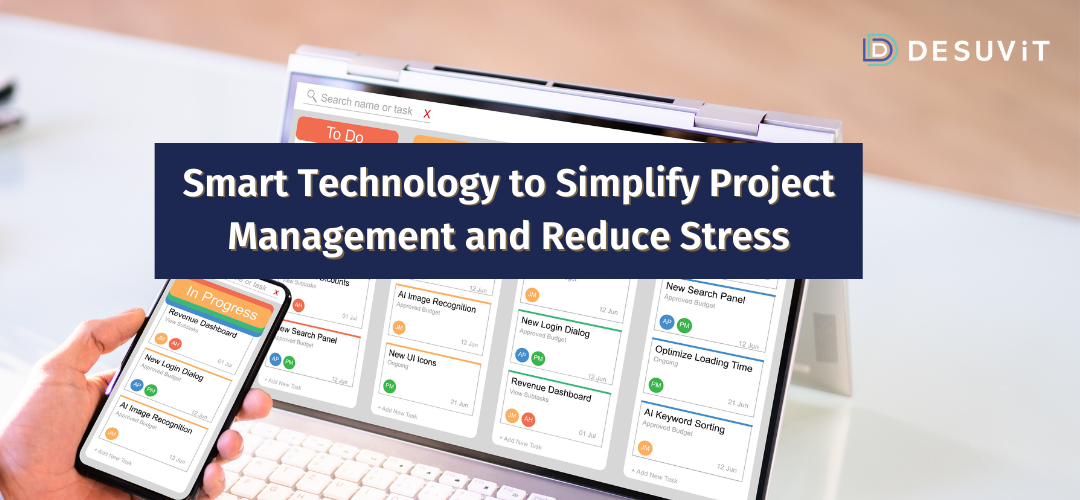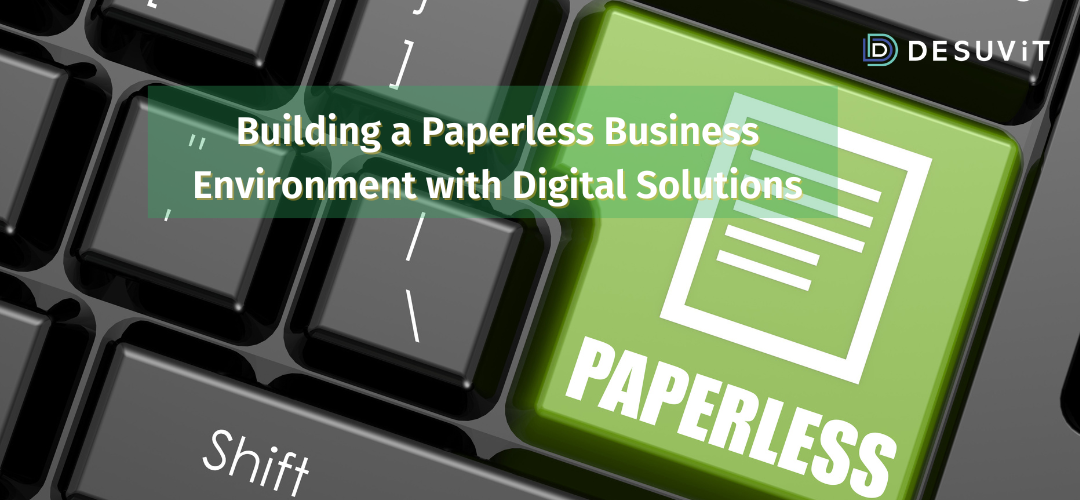Artificial Intelligence (AI) and Machine Learning (ML) have turned from fiction to reality with their impact on every industry. AI represents the endeavor to optimize business operations for high-level efficiency through technologies like machine learning.
You can already see its impact on the workings of significant industries and tech giants like Google, Microsoft, and Apple. Some even consider AI to be at the forefront of the 4th Industrial Revolution, where cyber systems meet physical systems.
Continue reading this article to understand the implementation of AI and machine learning in today’s context.
What Is Machine Learning And Artificial Intelligence?
Before going into the possibilities of this technology innovator, you should understand what AI entails.
Artificial Intelligence or AI refers to technology being leveraged to simulate human intelligence in machines. The goal here is to mimic capabilities of the human mind like decision-making, problem-solving and intelligent reasoning. This way, it can tackle both tedious and challenging tasks but faster and more accurately than humans.
Machine Learning or ML is a component of AI. The machine will analyze data after learning and recognizing computing algorithms within the data. It will learn by itself what insights to draw without being explicitly programmed on where to look and for what.
This kind of advancement has opened up opportunities for automating virtually every aspect of your life.
10 Ways Machine Learning And AI Have Impacted Businesses
The surge of AI has made it possible to process large amounts of data and conduct business development more accurately than ever. Let’s look at the breakdown of the possible AI and ML applications and their most popular use cases.
1. Automated Transportation
AI and ML are working their magic to automate driving and cut out the need for human motorists altogether. Tesla is a household name as a pioneer of the advanced electric vehicle market.
All Tesla vehicles are designed to be upgraded to self-driving capability in the future. They use AI through data sensors in cars to pick up on information like driver’s hand placement on the wheel and how they operate other features.
The company will use this data gathered from the vehicle for their work on integrated AI chips that are entirely based on ML. That means the future smart car will learn on its own how to steer and drive-by observing human drivers.
The use case shows how AI and ML are being used to provide consumers with quick yet safe driving capabilities. Data analysis and insights will allow cars to pick up information on what next course of action the vehicle needs to take.
2. Enhanced Healthcare Services
Hospitals are looking to use AI and ML for the improved well-being of humans. The technology will allow the processing of information and tackling medical problems that humans may not be capable of detecting.
Some use cases include reviewing patient data for diagnosis and scheduling appointments. It reduces the workload on doctors as well, who can focus on the betterment of their patients.
The healthcare industry is also considering the launch of AI-powered virtual assistants who will pave the way for home-based care. Remote health monitoring means hospitals will no longer be crowded, and patients get ownership over their care. These systems will provide real-time data insights and help predict any adverse reaction to avoid emergency hospitalization.
PathAI is currently expanding its ML techniques to spot early signs of cancer and get a more accurate diagnosis. When detected, the technology will also help develop an individualized treatment to suit the patient’s needs.
Personalized medicine and advanced diagnostic services with minimal errors have been made possible with AI and ML.
3. Personalization Of Digital Media Platforms
AI and ML have also been a massive help in enhancing the user experience on social media and streaming platforms. Platforms use AI and scour through consumer habits and data to highlight the most relevant content for the user.
For instance, Twitter’s AI algorithm will rank thousands of tweets for each user’s feed. So you get to see content that specifically caters to your taste. The platform is also using technology to improve its searchability and eliminate inappropriate content.
In the pool of streaming platforms, Netflix has been one of the biggest supporters of AI and ML. Its most prominent feature and use case is that of movie recommendations. Netflix leverages the watching history of users with similar taste to recommend you new movies or series.
The viewing data is also used to predict bandwidth usage, helping Netflix maintain video quality even during peak demand.
These media platforms are also taking it a step further and planning to use AI to produce content. So there’s no limit to how media can personalize the content for you with AI and ML algorithms.
4. Control Of High-Risk Jobs
AI and ML also improve people’s lives by providing a helping hand to humans in high-risk jobs. There are many dangerous jobs in the world today involving bomb disposals, collecting nuclear waste, and fighting literal fires.
These jobs have to get done, and till now, humans had no option but to do it themselves. However, a new wave of AI robots can undertake these tasks and protect human lives.
Cleaning up nuclear waste sites is one such job where you are put at severe risk by coming into contact with radioactive material. Forth Engineering of Cumbria and the University of Manchester in the UK came up with a solution.
The two parties put together the helpful AI robotic spider, Latro. Latro is a proof of concept robot that can access different waste areas and use varying parameters to define its cleanup operation.
Humans can stay out of harm’s way as robots swiftly make the cleanups and even disaster recovery in the future.

Top 5 areas of ML adoption
5. Analysis Of Financial Services
AI and ML complement the financial industry with predictive analytics, fraud detection, and overall better customer experience. The rate at which the algorithms would process large volumes of financial data would never be possible with human labor.
For a while, people have wanted to predict how the stock market will behave on a given day. With ML algorithms, you now can.
Many trading firms use their proprietary systems to analyze data, predict and execute trades at the optimal price. Their trades at high speeds and volume bring in high returns since they effectively mitigate any significant risk.
Besides predictive analysis, the finance industry has also found AI to help detect fraudulent behavior. For instance, PayPal uses Machine Learning to compare several transactions. It uses this information then to distinguish between legit and fraudulent transactions.
Banks have also started using AI to spot patterns in your transactions and alert you in case of any unusual activity.
6. Scalability And Product Development Of Consumer Goods
AI and ML have been at the forefront of the digital transformation of the consumer goods industry. From start to finish, AI technologies can optimize the entire product development process.
Coca-Cola is a giant that has invested a lot in AI to get as much insight as it can from the data collected. It released a new flavor, Cherry Sprite, based on the data collected from self-serve soft drink fountains where you can customize your drink.
By anticipating what the people wanted, the company increased customer loyalty and retention. To solidify this, AI is also helping in the manufacturing and logistics of the product.
Manufacturers can use AI to get real-time insight into the work in process. It allows for the elimination of any pain points in the manufacturing process.
Even for the advert stage, companies are using AI to trigger persona-based email marketing campaigns. It empowers consumers with a straightforward shopping experience where they get you exactly what you need.
With AI, the result is better quality control, supply-chain optimization, and personalized customer experience.
7. AI-Powered Environmental Protection
AI innovations that are environment-oriented are also coming up. This kind of technology will use data to create solutions for present environmental challenges and detect future ones.
A popular use case here is IBM’s Green Horizons project. The company will use AI technologies to collect environmental data from thousands of sensors. The data will produce accurate weather forecasts so city planners can come up with models to mitigate the negative weather impact.
AI-enabled drones are also being used to monitor endangered species and any poaching activity. The drones will detect motion or changes in the forest coverage area and alert the appropriate authorities.
With further advancements, AI can regulate the harmful emission that is already in your surroundings. For instance, AI-enabled traffic lights will collect data on the local pollution and make real-time adjustments to the traffic flow. So if it detects a pollution hotspot, it will send cars off in the other direction to reduce the pollution levels.
8. Digitized Personal Or Work Assistant
By now, you must have used or heard of Alexa and Siri. Digital assistants come with a multitude of features to streamline tedious tasks. So whether it is a personal reminder or a complex work task, they have got you covered.
Companies like Amazon and Google are also bettering their digital assistance offering with ML technologies. The improvements include more conversational interactions with your assistant, advanced voice recognition, and learning your customer experience preferences.
For businesses, digital assistants come in handy to manage incoming customer communication. The assistant can also help onboard new employees and save your precious time for more critical tasks.
9. Optimizing Customer Support
Customer support teams collect many unstructured data, organized and optimized for use by AI and ML.
One of the most common use cases is AI chatbots adopted by American Express, Spotify, Uber, etc. These chatbots are designed to proactively find ways to resolve any issues customers might come across. They do so by listening in on customer support agents’ calls to develop the best-suggested answer for the question the customer asked.
With ML, the customer support team can quickly go through all the customer complaints and responses to pinpoint the problem. That allows for a quick fix, resolving the issue before it occurs again, and improving customer satisfaction.
So AI and ML can streamline the customer support process without overcomplicating things.
10. Cybersecurity
The global information security market is expected to reach a little over $170 billion by 2022. Complex threats mean companies have to look out for AI and ML tools to toughen up their cybersecurity.
One of the popular uses of AI and ML in this area has been the automation of repetitive security tasks. It eliminates the need for people to spend hours doing low-value activities. ML can help review volumes of login activity when looking for a vulnerability, filter it, and pass on critical alerts to human analysts.
AI technology can also predict threats based on its data on recognized ones. It can help in resolving the issue before it’s too late.
Cylance is a software company that provides AI-powered antivirus software. The software does not require any updates as it will learn to predict, detect and resolve threats from monitoring program behavior.
Final Thoughts
Although not new, Artificial Intelligence and Machine Learning have proven to be fast-moving technologies in optimizing business operations. So it would be best if you consider getting these high-impact AI and ML applications to start generating long-term business value.
As it goes with any piece of technology, testing is crucial to get the most of your use of AI and ML. When you plan to use AI, analyze its impact at every stage of the project. That will help you perfect your AI and ML strategy as you tailor fit it for your needs.
If you are thinking of reaching out to a software development company, then look no further. At Desuvit, we help customers automate business workflows and receive higher productivity and ROI. Contact us to discuss your project more. Let us help you grow your business.
Desuvit is a Norway-born software development company delivering Custom Software Development, Mobile Apps, and Web Applications Development for various verticals and business domains. We offer end-to-end solutions for companies with no software or IT division, Startups, and companies that need to scale their software development efforts but lack the expertise required. We help our clients in growing their businesses so we can grow with them. Some of the technologies we work with: .Net, Azure, Microservices, Azure functions(Serverless computing), React Native, Flutter, React JS, TypeScript, Angular, NServiceBus, Azure Service Bus, Azure Queues, SQL Service, MySQL, Cosmos DB, etc.
Enjoyed this article? Subscribe for more valuable and great content !
By subscribing, you agree with our privacy policy and our terms of service.






